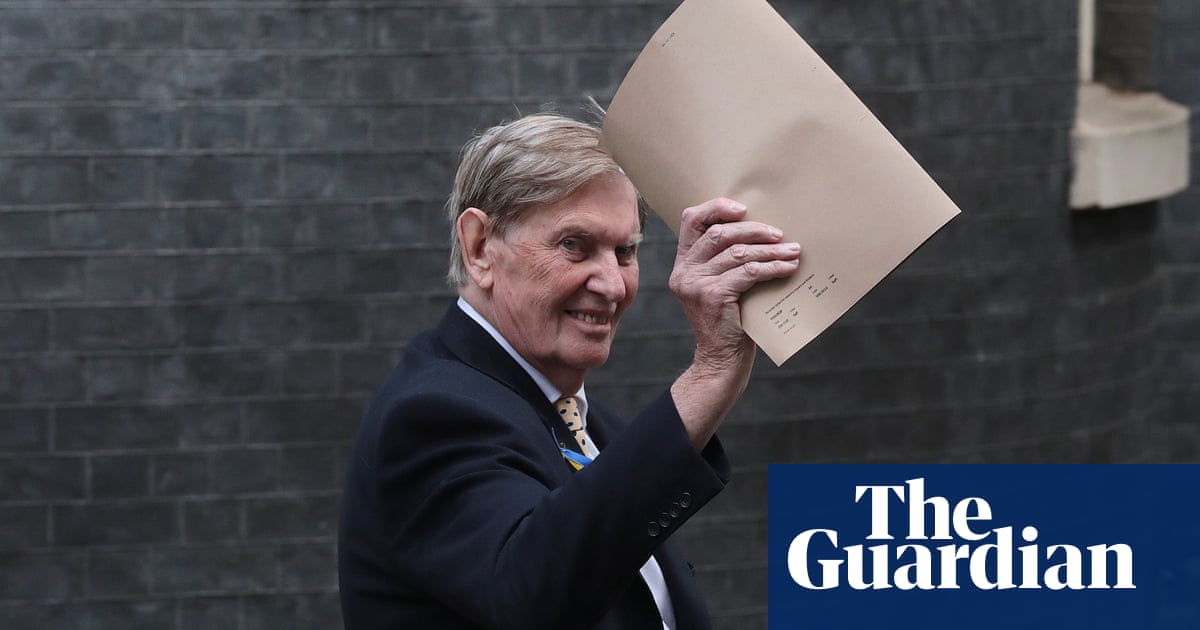
It was the moment when parliament first formally recognised the appalling fate of the Jewish people at the hands of the Nazis – and MPs rose from their seats in solemn silence.
The date was 17 December 1942 and evidence of the deportation of Jews from occupied countries to eastern Europe was mounting by the day.
Foreign secretary Anthony Eden, when asked about the government’s knowledge of the Nazis’ murderous intentions, spoke of “reliable reports … regarding the barbarous and inhuman treatment to which Jews are being subjected in German-occupied Europe”.
He went on: “The able-bodied are slowly worked to death in labour camps. The infirm are left to die of exposure and starvation or are deliberately massacred in mass executions. The number of victims of these bloody cruelties is reckoned in many hundreds of thousands of entirely innocent men, women and children.”
As MPs absorbed the enormity of the statement, and after a few questions about what could possibly be done, the Labour MP William Cluse asked that all colleagues “rise in their places” for a minute of silent protest.
On Thursday, MPs will stand in silence again to mark one of the most poignant occasions in parliament’s history – news of which was reported across the world, including on the front page of the next day’s New York Times.
Among those attending will be at least four survivors of the Holocaust.
Olivia Marks-Woldman, chief executive of the Holocaust Memorial Day Trust, said it was “immensely fitting that people who suffered such appalling cruelty will now be honoured in the heart of our democracy.”
The occasion is bound, however, to reopen debate about whether Allies could have done more. While 17 December 1942 may have gone down as the day parliament formally recognised the Holocaust, historians point out that reports of Nazi atrocities against the Jews had been circulating widely in government circles, in the Jewish community in the UK, and at Westminster, for some time.
As a result, Eden’s announcement would draw accusations from some that the UK government had failed to respond early or strongly enough.
Reports of atrocities in Nazi-occupied Poland had been prominent in the British press over the previous weeks, thanks in large part to information conveyed to the British authorities by the Polish civil servant Jan Karski.
Almost six months before that, on 26 June, the BBC in London had broadcast a report from Warsaw that 700,000 Jews had been murdered.
The historian Antony Beevor says that in British governing circles the confirmation by the Allied powers of Nazi atrocities provoked not only anger and revulsion – but also “embarrassment and unease”.
Beevor related how one prominent Labour MP, Harold Nicolson, a close friend of Winston Churchill and Eden, wrote the following in his diary on 9 December: “We have a committee meeting at which several representative Jews tell us of the extermination of their fellows by the Nazis.
“They have ringed off the Warsaw ghetto and transported two-thirds of the inhabitants in cattle trucks to die in Russia. It is horrible that we are so saturated with horrors that this Black Hole on a gigantic scale scarcely concerns us. They put lime and chloride in the trucks and bury the corpses next morning.
“They are particularly vindictive against children. I have a sense that my fellow members [of parliament] feel not so much ‘What can we do for such people?’ as ‘What can we do with such people after the war?’”
Also in the months following Eden’s announcement to the Commons, some MPs complained of subsequent inaction. In February 1943, Labour MP Seymour Cocks asked home secretary Herbert Morrison: “Does my right honourable friend realise that when the House of Commons stood as a mark of sympathy in connection with this matter it was not intended as a signal for the government that they should stand still and do nothing?”
Secret discussions subsequent took place as to why the Allies could not bomb railway lines leading to the concentration camps, or the camps themselves. Air force chiefs rejected requests to bomb rail lines leading to extermination camps because their heavy aircraft which had the range to reach Poland could not hit precision targets.
Rachel Century, a historian and deputy chief executive of the Holocaust Memorial Day Trust added: “The House of Commons had questioned the British government on a number of previous occasions on the atrocities in Nazi-occupied Europe. The government had waited and exercised caution to avoid condemning ordinary German people, who at the time were seen by the British public as victims of the Nazis, and to protect any military advantage they might have had.”












